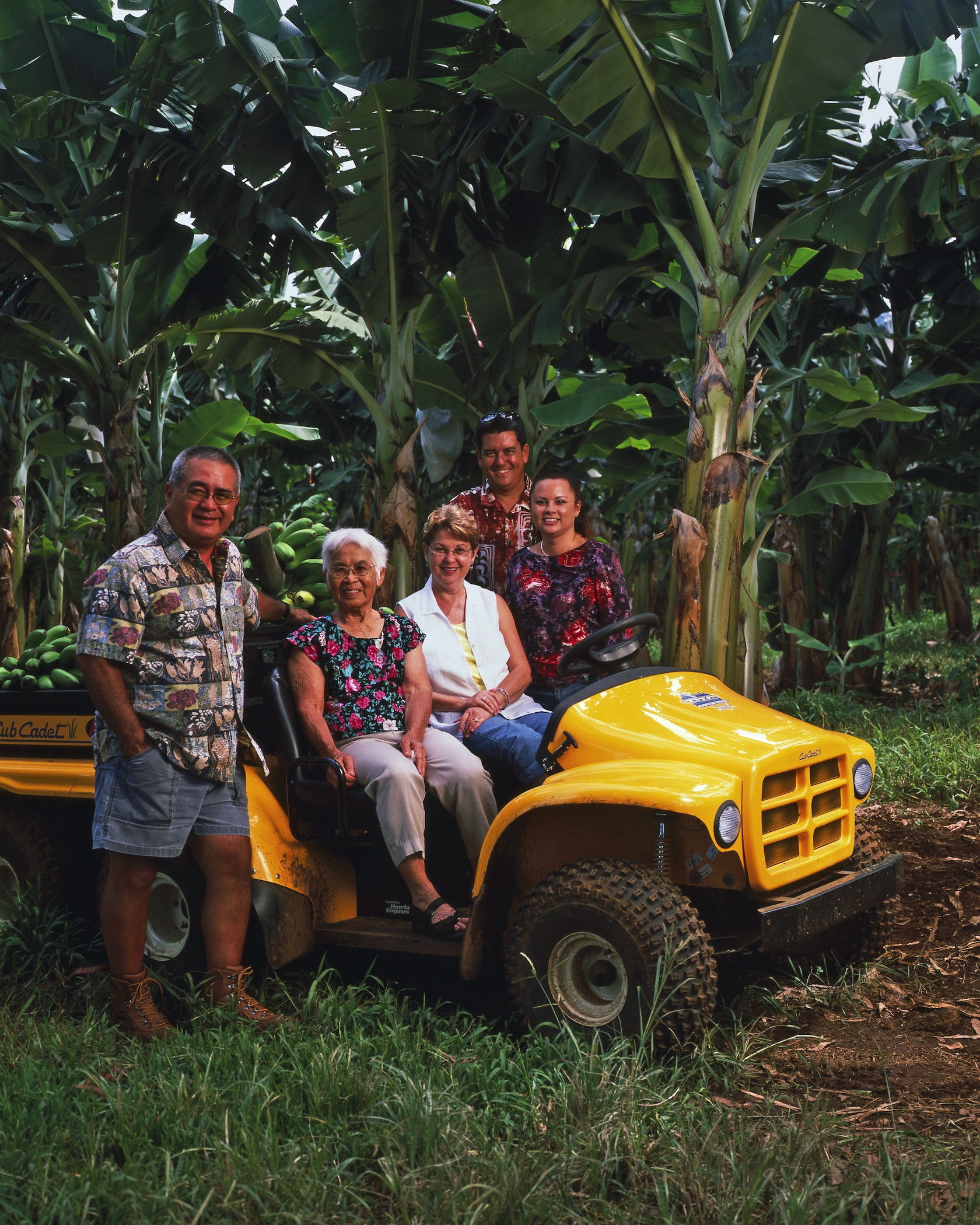The sixth annual Chefs du Jour is a fundraiser for Easter Seals that will be held on August 11th at the Aloha Tower Marketplace in Honolulu. The event will be taped and shown on television as a one-hour special.
Last week we took a farm tour of Dean Okimoto’s farm in Waimanalo, on O‘ahu. The farm tour was taped too, and will also be a part of that television special.
Here’s Dean Okimoto’s Farm in Waimanalo. What a nice Hawaiian place.

After our farm tour, the Easter Seals children in attendance got a special lunch featuring the “Seal of Quality dream burger.” This is Ryan Lum of the North Shore Cattle Company grilling burgers from the company’s beef. It’s very lean, grass-fed, hormone free, dry aged beef. Fabulous taste and good for you.

Conrad Nonaka and Dean Okimoto with Easter Seals kids, trying different greens from Dean’s farm.

This special burger was made entirely of Seal of Quality member products: North Shore Cattle Company’s dry aged, grass-fed beef, Hamakua Springs’s heirloom tomatoes, Dean’s Greens, mushrooms from Hamakua Mushrooms, and Wailea Ag Group’s heart of palm. Celebrity chefs and Seal of Quality farmers served the burgers to the children.
Representative Clifton Tsuji, chairman of the House of Representative’s Agriculture committee, told us his thoughts about sustainability. His background is as a senior bank executive, and he grew up where people raised their own vegetables. He knows how farmers have to grow their crops and pay their bills.
Hawaii Seal of Quality members’ products at Dean’s farm.
Chef Hiroshi Fukui, Chef Roy Yamaguchi, me, Clifton Tsuji (House of Representatives Ag committee chairman), Chef Alan Wong.

The serving line was made up of Chef Alan, Dean, me, Mike Crowell of Wailea Ag Group, Chef Hiroshi and Chef Roy.
The Easter Seals kids got to tour the farm and then eat a great lunch served by world-famous chefs. We farmers were glad to be a part of this special event, which you can also read about here.




















